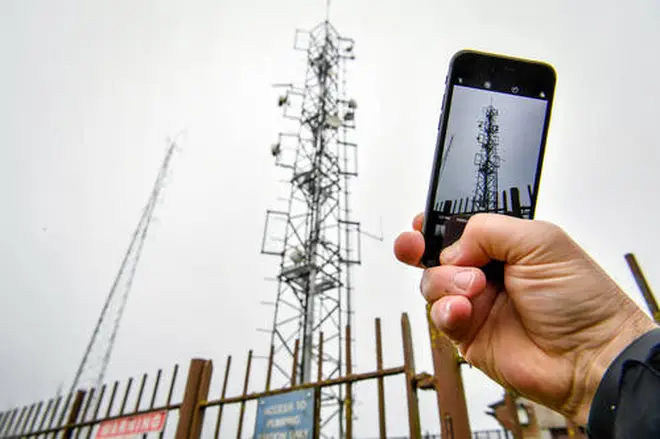
Ian Payne 4am - 7am
27 August 2020, 05:39

"Quack" theories around 5G masts has lead the Government to publish a guide on the subject to dispel myths they could harm people's health.
Conspiracy theories have emerged claiming that the growing 5G network was behind the coronavirus outbreak and that they could damage public health by emitting dangerous levels of radiation.
The misinformation campaign has resulted in some communication masts being vandalised - an act the Government warned could cost lives as damaging them could prevent calls to the emergency services from being made.
Digital infrastructure minister Matt Warman and local government minister Simon Clarke have written to councils to promote a new guide which can be handed out to worried constituents in an effort to dispel the misleading theories taking hold on social media.
The information pamphlet, 5G Mobile Technology: A Guide, explains how 5G works and states that watchdog Ofcom found the wave emission readings taken from the masts are "a small fraction" of the amount permitted by the International Commission for Non-Ionising Radiation Protection (ICNIRP).

Michael Gove calls 5G coronavirus conspiracy theories ‘dangerous nonsense’
The guide, published on Thursday, says: "Companies have been rolling out 5G in the UK since 2019.
"However, some people have raised concerns that the introduction of 5G could affect people's health and have even linked it to the coronavirus pandemic.
"These claims are completely unfounded and should not be used as a basis to block or delay 5G rollout."
Mr Warman and Mr Clarke, in their letter to local authorities, also called for more to be done to help find sites for masts and the installation of full fibre broadband.
Telecoms companies need to secure rights to install their infrastructure on public sector land and buildings but there are concerns some deals are not progressing quickly enough.
Boris Johnson's Conservative Party manifesto vowed to "bring full fibre and gigabit-capable broadband to every home and business across the UK by 2025".

Eamonn Holmes clarifies his 'misinterpreted' 5G comments
The Government is encouraging councils, which are obliged to get "best value" when agreeing land access agreements, to take into account "non-monetary benefits" such as enhanced connectivity.
Mr Warman said: "Councils have a vital role to play in the roll-out of digital infrastructure and while there is good work going on up and down the country, there is more we can do.
"Today I'm writing to local authorities with new guidance and advice to help them break down some of the barriers to roll-out and give them the tools they need to quell quack theories about 5G."
Philip Marnick, spectrum group director at Ofcom, said: "The UK has a great opportunity to be a world leader in 5G - making the most of the benefits this new technology offers people and businesses.
"So it's important that public bodies work together to address some of the myths and misinformation around 5G, and that decisions are based on sound evidence."
Labour shadow digital minister Chi Onwurah said legislation needed strengthening to properly protect against 5G misinformation.
He said: "We welcome the Government's moves to tackle the dangerous misinformation about 5G and the coronavirus which is putting lives at risk.
"But sadly, this guidance will not solve the problem without the Government doing what is needed on the online harms bill to tackle misinformation on social media."
In their correspondence with councils, Mr Warman and Mr Clarke pointed to Cambridgeshire and Kent as examples of where local authorities have worked effectively to encourage next-generation gigabit broadband networks.
The West Midlands 5G project, part of the Government's £200 million 5G testbed and trials programme, was cited as having successfully addressed some of the challenges councils face when deploying 5G technology.
The West Midlands also is one of the areas in the country with the highest available coverage of gigabit capable broadband, while others include Hull, Dunbartonshire, Reading, Edinburgh, Southampton and Liverpool.
Councillor Mark Hawthorne, the Local Government Association's digital connectivity spokesman, said: "This new suite of guidance will complement the work councils are already doing, alongside central government and local partners, to support the roll-out of digital infrastructure across local areas."